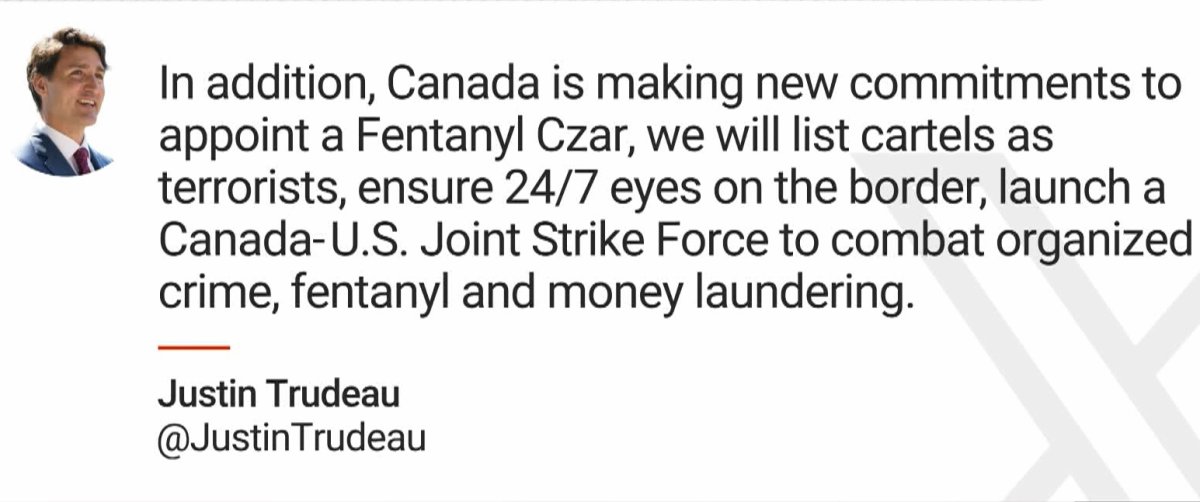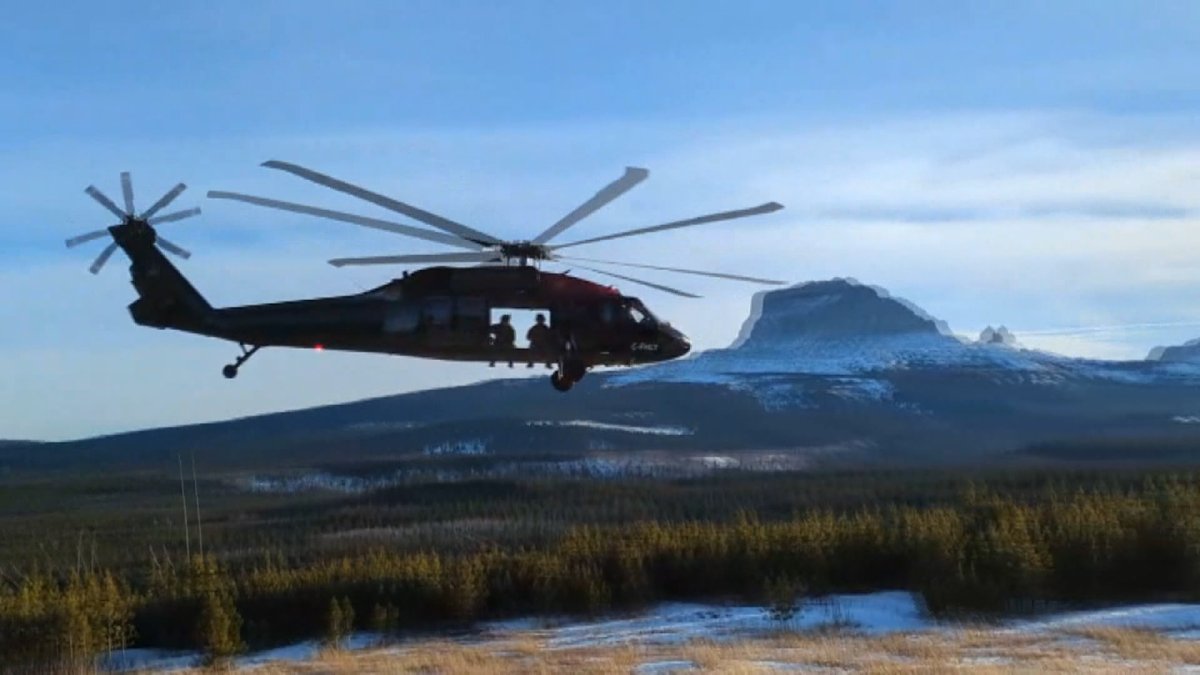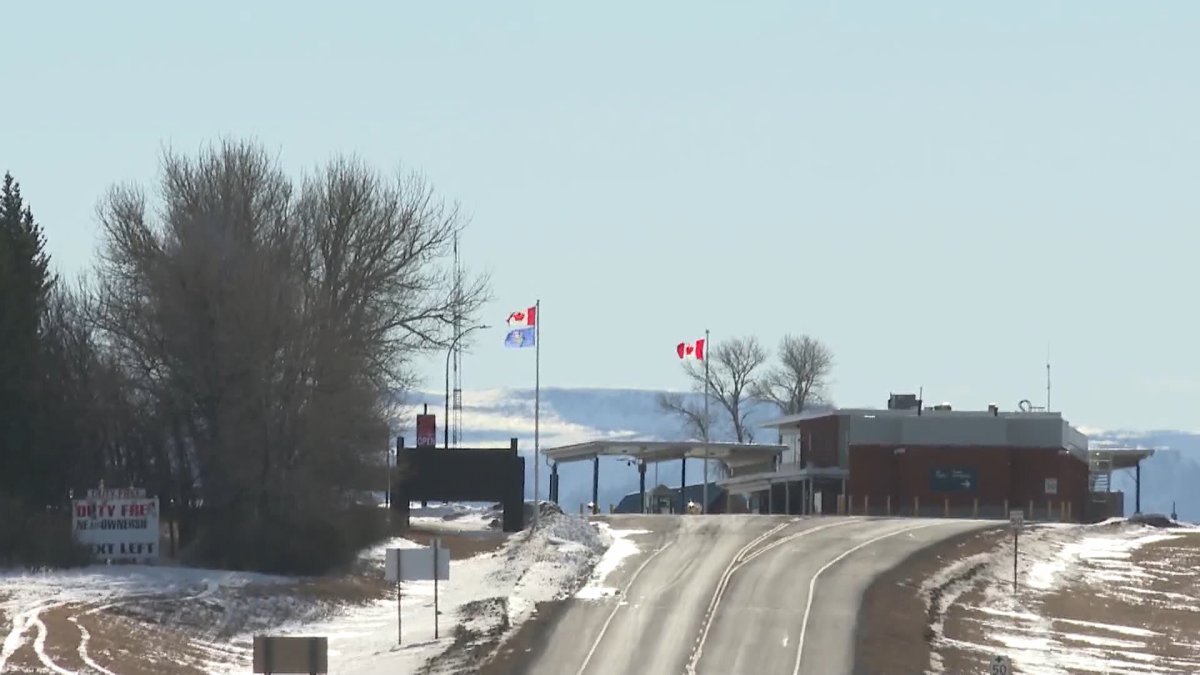With the threat of steep tariffs on the sale of Canadian goods in the U.S. on pause, the Premier of Alberta said Tuesday there is a long list of things that she says need to be done if Canada wants to avoid similar threats in the future.
On Monday, following a phone call with U.S. President Donald Trump, just hours before a 25 per cent tariff on Canadian imports (10 per cent on oil) was scheduled to take effect, Prime Minister Justin Trudeau announced on social media that the two leaders had come to an agreement, pausing the tariffs for one month.
On Monday, just hours before the steep U.S. tariffs on Canadian imports were due to take effect, Prime Minister Justin Trudeau announced an agreement with President Donald Trump for a 30 day pause.
X/@JustinTrudeau
Under the agreement, Canada agreed to implement at $1.3-billion plan to secure the Canada-U.S. border, including the use of Black Hawk helicopters and other technology, the use of 10,000 front-line personnel, the appointment of a new fentanyl czar, listing drug cartels as terrorists and launching a Canada-U.S. joint strike force to combat organized crime, fentanyl and money laundering.
In an exclusive interview with Global News on Tuesday, Smith said, “I’m glad to see that we put together a robust package that seems to have satisfied the American concerns for now. I think that package was enough to give them satisfaction for the next 30 days.
“Now what? We’ve got to back that up with a response and stop the flow of fentanyl and illegal migrants into the U.S.”
An RCMP black hawk helicopters is seen conducting patrols along the Canada- U.S. border near Coutts, Alberta where it began operations in late January.
Global News
Smith says the implementation of the border plan will also require help from the provinces.
“I mean, it’s pretty clear that finding 10,000 personnel is going to require us to use — in Alberta — our RCMP resources, our sheriffs or municipal police forces, maybe our commercial vehicle inspection teams — because if you’re trying to hire new people, train them up from scratch, that’s not going to cut it,” said Smith.
“We need to use our existing personnel and then backfill.”
Smith, who met with Trump at his home in Florida in mid-January and is planning to head back to Washington twice in February to meet with U.S. lawmakers, said the only way to avoid future tariffs is for Canada to be, “part of the U.S. orbit.”
“I think the only nations that are going to avoid that are likely to be those those states that were within their umbrella,” said Smith. “Maybe Canada would be able to negotiate some carve-outs because we have a special relationship.”
Asked for her reaction to Trump’s call for Canada to become the 51st state, Smith suggested it is a bargaining tactic by Trump to get what he wants on a host of issues.
“I think we have to realize that if we want to be a separate, sovereign, independent, strong country, we’ve got to have a military so we can defend our own borders. We’ve got to be able to have a presence in the Arctic so that we can defend our territory. We’ve got to be able to launch a robust response in our borders. And those are the things that I think the president is looking for,” said Smith.
“In the absence of that is I think he’s sort of saying, ‘If you can’t take care of yourself, maybe you should join us and we’ll take care of you on your behalf.’”
Smith, who has consistently been at odds with Trudeau, also renewed her call for a federal election.
“I feel more strongly than ever that we need to have a general election,” said Smith. “You need to have a consistent voice at the table. So I will be pressing very hard once the threat of the federal tariffs is over, that we need an election.
“We need someone with a four-year mandate to negotiate. It’s going to be a hard four years and we cannot have this uncertainty any longer.”
Alberta Premier Danielle Smith says the job of patrolling the Canada-U.S. border will likely require resources from federal, provincial and possibly municipal law enforcement agencies.
Global News
While working to improve Canada- U.S. relations, Smith also says Ottawa and the provinces need to do more to reduce interprovincial trade barriers.
“We have the ability, now with a galvanized public — we’ve got the ability to streamline the regulatory permitting process. So let’s get those products on trucks and on trains and in pipelines and get them to where they’re needed,” said Smith.
“It’s not just that the Americans need it — everyone needs them.”
With the province announcing on Tuesday that next year’s provincial budget will be tabled in the Alberta legislature on Feb. 27, Smith is warning the ongoing threat of tariffs is also creating more financial uncertainty.
“We have to presume the worst-case scenario,” said Smith. “I’ve told Albertans that we need oil about $74 (per barrel) in order to be able to balance our budget. Most of the estimates for what oil are going to be next year are coming in substantially lower than that. So I’ve told Albertans that we need to brace for deficits.”



